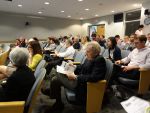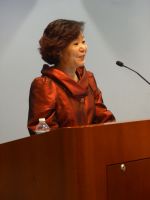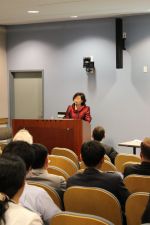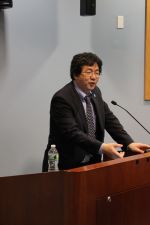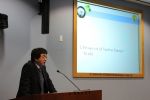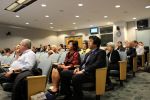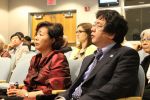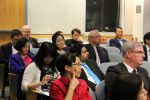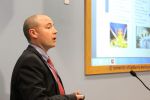Safe, Secure, and Peaceful Use: Nuclear Energy and Safeguards
April 10, 2013
Given the increasing world demand for energy and the growth of global greenhouse gas emissions, nuclear power has become an imperative rather than simply an energy option. While renewable energy technologies continue to develop, nuclear energy will have to play a significant role in the energy portfolios of countries seeking clean and reliable power. For many countries, such as the Republic of Korea, nuclear is not only the most cost effective energy option, but is also a means to address issues such as energy security and air quality. Nevertheless, the future deployment and operation of nuclear power reactors will depend on addressing a number of challenges, including safety, spent fuel management, and public acceptance. Tackling these problems will require the application of lessons learned from the Fukushima accident, the development of next generation reactor technologies, and continued engagement with publics in countries with civil nuclear programs.
Another challenge that will need to be addressed to ensure the continued safe and secure use of nuclear power is nonproliferation. A large part of the International Atomic Energy Agency’s mandate is to ensure that nuclear power is utilized only for peaceful purposes, and that nuclear energy technology is not utilized or diverted to military or weapons programs, otherwise known as safeguards. The IAEA employs a variety of legal and technical means to fulfill these objectives. Multilateral programs, such as the Next Generation Safeguards Initiative (NGSI), seek to bolster the international safeguards system by developing policies, technologies, expertise, and infrastructure in order to aid the IAEA in this important mission. From a technical perspective, one of the most important concepts in enhancing the safeguardability of fuel cycle facilities is prior planning and “baking” safeguards into the design of a plant. For the Rokkasho Reprocessing Plant, the most difficult challenges generally involved retrofitting safeguards systems for components and equipment that had already been designed. In the case of electro-chemical recycling, or pyroprocessing, although there are inherent challenges in safeguarding such a technology, there are also opportunities to take safeguards by design a step further, formulate novel safeguards concepts, and design the process for safeguardability from the very beginning.
